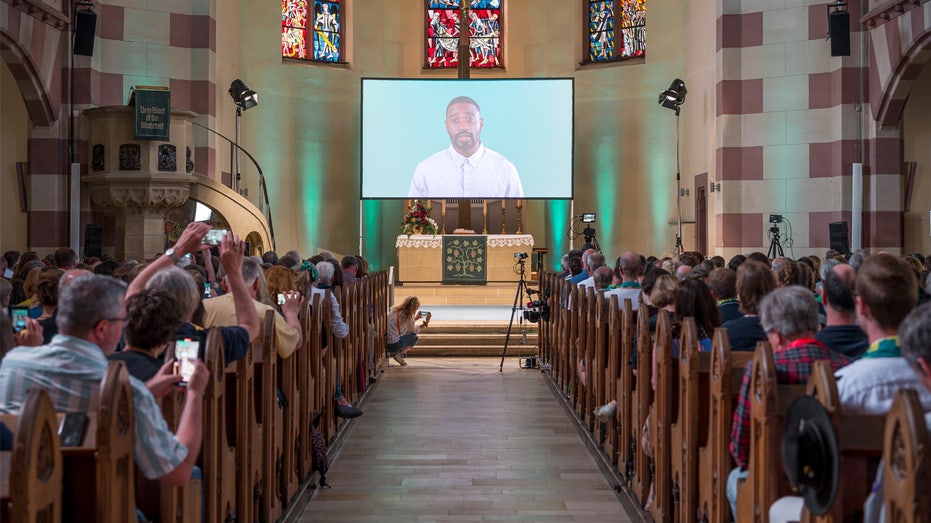American Christians are more likely to be skeptical about artificial intelligence and are particularly apprehensive about using generative AI in church services, according to a recent survey.
Just over a quarter of Christians (28%) surveyed by Barna this fall said they were hopeful about AI development, while 39% of self-identified non-Christians said the same.
Only a fraction of Christians surveyed agreed that “AI is good for the Christian Church,” according to the Barna survey, conducted through a consumer research panel. Just 22% said they agreed AI would be positive for the church, while 30% strongly disagreed and 21% said they somewhat disagreed.
The hesitation about AI has not stopped some churches around the world from experimenting with tools like OpenAI’s ChatGPT.
PASTOR WHO USED AI FOR CHURCH SERVICE SAYS IT WAS A ‘ONE-TIME DEAL’: ‘LET’S NEVER DO THAT AGAIN’
Jay Cooper, Methodist pastor of the Violet Crown City Church in Austin, Texas, created a whole service earlier this year using ChatGPT to see what it could do.
While the experiment succeeded in creating discussion about the new technology and showed an impressive grasp of Christian concepts, Cooper found that something was lacking.
CHRISTIANS ATTACK CHATGPT-GENERATED FAKE BIBLE VERSE ABOUT JESUS ENDORSING TRANSGENDERISM
“As I was preaching, I became less and less comfortable as I was going along. Although he was making some interesting points, it did not have the human element. I knew that it was not from my own mind or heart,” Cooper told Fox News in October.
“Without the human element, it was not worshipful to me.”
Some have encouraged churches to embrace aspects of AI, with caveats.
Kenny Jahng, founder of AiForChurchLeaders.com and editor-in-chief of ChurchTechToday.com, told an event hosted by Barna that AI, like any technology, “is here to serve us and not the other way around.”
“There’s all this fear that AI is going to be taking over the world, it’s going to be human versus machine. [But] if we step back and look at it, there are things that AI is really good for,” he said.
However, how AI is used makes all the difference.
WHAT IS ARTIFICIAL INTELLIGENCE (AI)?
“This AI technology hallucinates, as we say. It doesn’t actually give back factual information all the time. Sometimes it’s off, sometimes it’s wrong, and it says it with confidence,” Jahng told the “Church Leaders” podcast earlier this year.
As society deals with the rapidly changing technology, a Catholic theologian cautioned that AI could represent a dangerous kind of development for the world.
“The church always encourages the development of technology that will be at the service of the human person. And, so, when it facilitates our flourishing as human beings, when it helps us to do the good that we already want to try to do, the church — always as long as there’s no detectable ethical violations — would ordinarily be behind that as a general principle,” Fr. Anselm Ramelow said in a conversation with the Catholic Minute.
The issue with AI is that the technology appears to be progressing in such a way as to replace uniquely human capacities like cognition, Ramelow said.
“I think it’s a violation of human dignity, and more importantly, I think it gives us the wrong impression of what it actually means to be human. I think before long we’re going to be talking about our AI as if it’s equivalent to being human because we’ve reduced the human person to just being a series of cognitive functions,” Ramelow said.
























